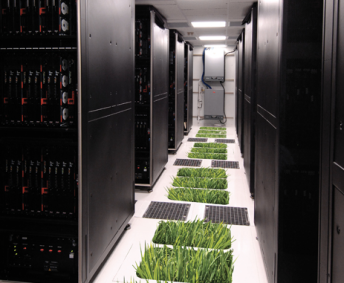
So, what’s the problem? Apparently, the American Society of Heating, Refrigerating and Air-Conditioning Engineers (ASHRAE) has just included data centers on its list of buildings that need to comply with its Standard 90.1, requiring property owners to not only beef up efficiency practices, but to deploy specific technologies to make it happen. This is the piece that Google objects to.
[aditude-amp id="flyingcarpet" targeting='{"env":"staging","page_type":"article","post_id":175318,"post_type":"story","post_chan":"none","tags":null,"ai":false,"category":"none","all_categories":"business,enterprise,","session":"D"}']And the search giant isn’t alone. It’s joined forces with Microsoft, Amazon, Nokia and others to protest the new data center standards, arguing in a blog post today that fuel efficiency standards mandate mileages, but not the engines needed to achieve them. By locking them into equipment — particularly that used to cool servers in data centers — ASHRAE is limiting what these companies can do to green their operations. They are, after all, technology companies, and might have ideas about how to go even further in reducing energy use and emissions, they say.
To be in compliance with Standard 90.1, these companies need to use devices called economizers that circulate ambient air to cool down servers. Google and the others acknowledge the perks of this equipment, but claim that they may not always be the number one choice, dependent on the situation. On top of that, official standards often lag behind innovation, and no one wants to be forced to stick with antiquated technology just because regulators can’t keep up.
AI Weekly
The must-read newsletter for AI and Big Data industry written by Khari Johnson, Kyle Wiggers, and Seth Colaner.
Included with VentureBeat Insider and VentureBeat VIP memberships.
It seems the fight isn’t as much about the exact mandates as it is about these companies retaining control over their data centers. Which makes sense, considering how touchy most of these players are about their data center operations, keeping their locations and server volumes classified.
Google, Microsoft, Amazon and Nokia make for strange bedfellows, but they came together in this instance to push the same recommendation: The adoption of a universal data center efficiency standard that sets an “aggressive target for the maximum amount of energy used,” without forcing companies to meet it in a certain way.
This type of standard is already being pushed by leaders in the data center industry (PDF). This metric, called Power Usage Effectiveness, is already used by Google, and the Environmental Protection Agency’s Energy Star program uses it as part of its certification process. So, while building codes have adhered to ASHRAE guidelines in the past, this might not be the case for too much longer.
Why should entrepreneurs and their investors care about Google and other big fish facing off against environmental standards? With more and more startups exploring and depending on the capacity of the cloud, data centers are becoming core to the missions of companies big and small. And it’s the startups that will have the hardest time defraying the costs of mandated cooling equipment — a major frustration when there are cheaper options on the horizon.
VentureBeat's mission is to be a digital town square for technical decision-makers to gain knowledge about transformative enterprise technology and transact. Learn More
